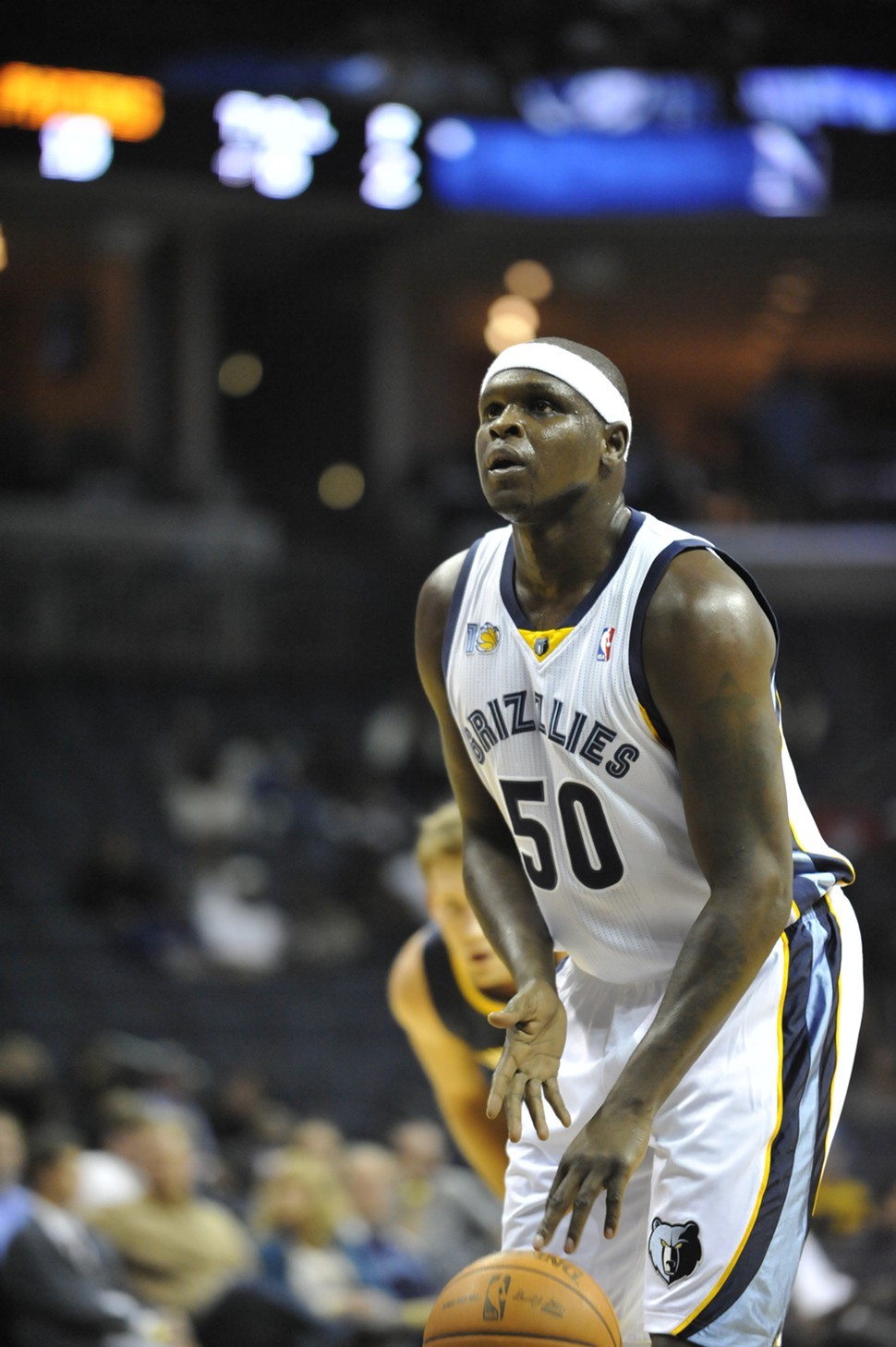As we face a moment-of-truth weekend in the CBA negotiations, we here at Beyond the Arc continue to prepare for the best. The fourth post of my five-part look at the Grizzlies roster entering an abbreviated “off season”:

- LARRY KUZNIEWSKI
- Zach Randolph
Zach Randolph
Regular Season: 36.3 mpg, 20.1 ppg, 12.2 rpg, 2.2 apg, .84 spg, .33 bpg, 2.0 tpg, 22.7 PER, 50fg%, 76ft%, 19 3p% (.6 att)
Playoffs: 39.6 mpg, 22.2 ppg, 10.8 rpg, 2.4 apg, 1.08 spg, .77 bpg, 2.1 tpg, 22.1 PER, 45fg%, 82ft%, 25 3p% (.6 att)
Age: 30
Contract Status: In first year of four-year, $66 million deal. First year should be around $15 million.
What a year. Randolph didn’t make the All-Star team like he did in his first season with the Grizzlies, but he was an even better player, and his payoff came at the end, with an all-NBA selection and a post-season explosion that solidified him — at last — as a recognized elite player.
In 2010-2011, Randolph consolidated his previous season’s efficiency as a scorer and rebounder — notching his highest shooting percentage since becoming a starter and his best rebound rate ever — but made his real strides in areas that have always been his biggest weaknesses — passing and defense. Randolph didn’t morph into vintage Kevin Garnett, but the days of legitimately labeling him a “black hole” or a “bad defender” were over.
At his very best, Randolph was as dominant a post-season player as anyone last season — including Dirk Nowitzki and Kevin Durant. In consecutive Game 6s — one to close out a series and one to avoid elimination — Randolph took completely took over games. But Randolph’s brilliant playoff games overshadowed some bad ones. In truth, Randolph was inconsistent in the playoffs, although this inconsistency probably had as much to do with the Grizzlies’ inability to relieve pressure on Randolph with perimeter offense as it did with Randolph’s own play.
Randolph had three playoff games in which he shot under 36% from the floor. In those three games, he averaged 11.6 points per game and the Grizzlies lost all three by an average of 14 points a game, which underscored all much the Grizzlies missed Rudy Gay as a second shot-creator on the perimeter.